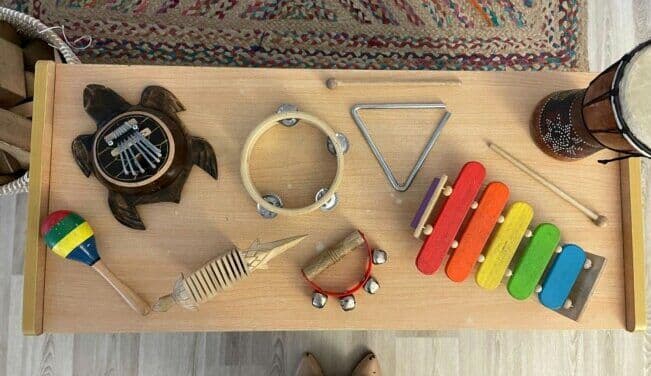Practice
Quality
Understanding Children
International Music Day highlights culture, connection and communication in early learning

FDC-Friendly
Fiona Alston
Sep 30, 2025
Save
Early learning services around Australia may choose to mark International Music Day on 1 October, using the occasion to explore the developmental, cultural and relational dimensions of music in early childhood education and care (ECEC).
Established in 1975 by the International Music Council, a UNESCO-affiliated body, International Music Day promotes music as a universal language that fosters peace, dialogue and mutual understanding. Now observed in more than 150 countries, the day is often marked with concerts, workshops and community events.In early learning settings, music can serve a range of purposes beyond entertainment. Research suggests it may support various areas of development, including cognition, language, social interaction and emotional wellbeing. Musical experiences such as singing, movement, and instrument play are associated with skills like phonological awareness, memory, self-regulation and social cooperation.
Music may also support cultural responsiveness in practice. Songs, instruments and musical traditions from diverse communities can offer meaningful ways to reflect children’s identities and lived experiences. For some children from culturally and linguistically diverse backgrounds, familiar music may help bridge the transition between home and early learning environments.
International Music Day can also serve as a prompt for services to reflect on how music features in everyday practice. Some services explore open-ended sound play, use songs to extend storytime, or engage families through musical contributions. Other approaches include sound walks, curated playlists, or co-creating music with children.
While music is often embedded throughout the year, this international event may offer an opportunity to revisit music’s place in planning, documentation and professional learning, including its links to the Early Years Learning Framework and the National Quality Framework.
Music in early learning does not necessarily rely on formal training or specialist resources. Everyday materials, educator involvement, and children’s spontaneous engagement can contribute meaningfully to musical experiences.
For some, music may also provide a sensory and social counterbalance to digital engagement, supporting connection and presence in shared learning environments.
Observed annually on 1 October, International Music Day invites reflection on the many ways music can be experienced, shared and celebrated in early childhood settings.
Don’t miss a thing
Related Articles



















